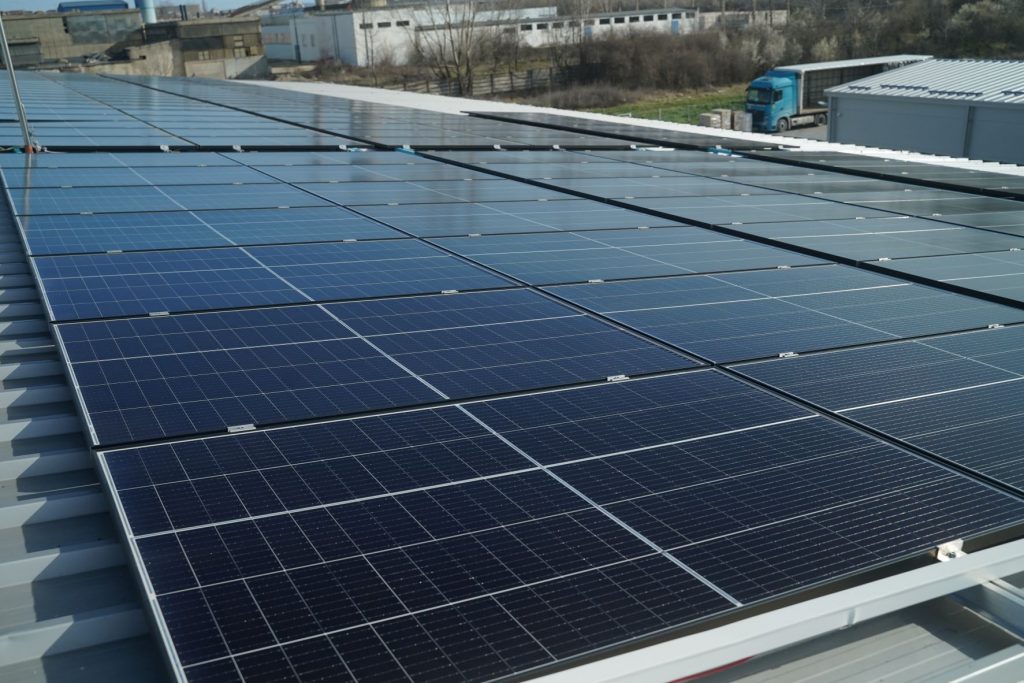In recent years, solar energy has become an important source of renewable energy and an efficient means of reducing energy costs. Photovoltaic panels have gained popularity due to their energy efficiency and sustainability. However, to ensure that the photovoltaic system remains efficient, it is essential to pay special attention to maintenance and cleaning of the photovoltaic panels. In this article, we will explore the importance of these processes and how to optimize them to maintain the performance of your system.
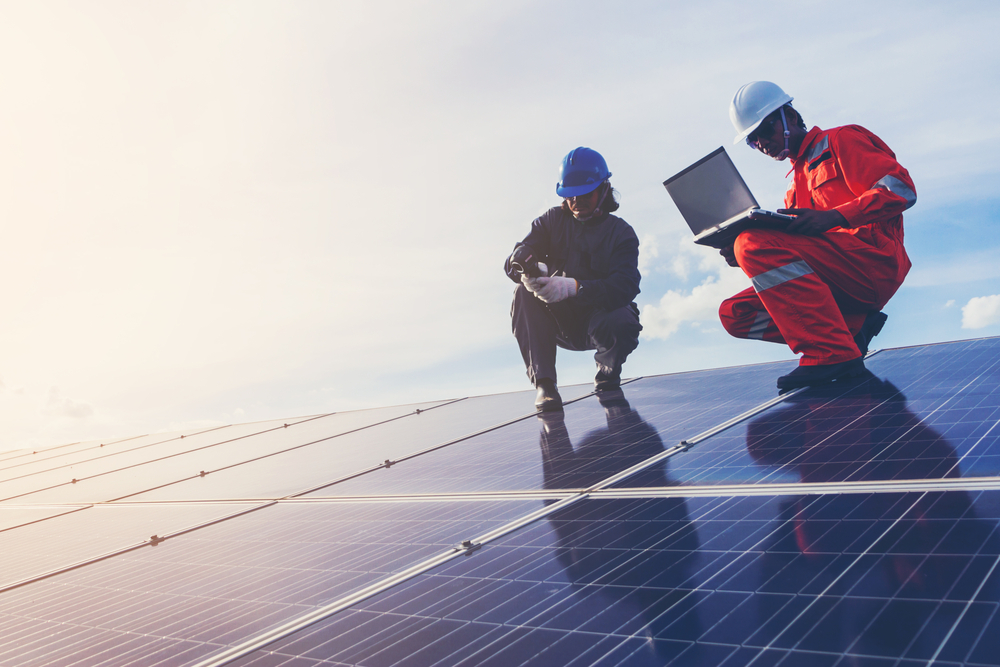
Why is the maintenance of photovoltaic systems so important?
Photovoltaic systems are comprised of several components, including photovoltaic panels, inverters, batteries, and cables. Each of these components needs to be periodically checked to ensure proper functioning and to prevent potential malfunctions.
Additionally, the maintenance of the photovoltaic system can prevent energy losses that may occur due to technical issues or equipment deterioration.
Among the maintenance operations of photovoltaic systems are:
- Checking voltage and electric current
- Verifying the operational parameters of the photovoltaic system
- Inspecting connections and cables
- Cleaning photovoltaic panels
- Verifying the racking system
Cleaning photovoltaic panels – why is it so important?
The cleaning of photovoltaic panels is neglected by many owners. If this is not done often enough, the performance of the photovoltaic system can be decreased due to the layer of dirt that accumulates on the surface of the photovoltaic panels over time.
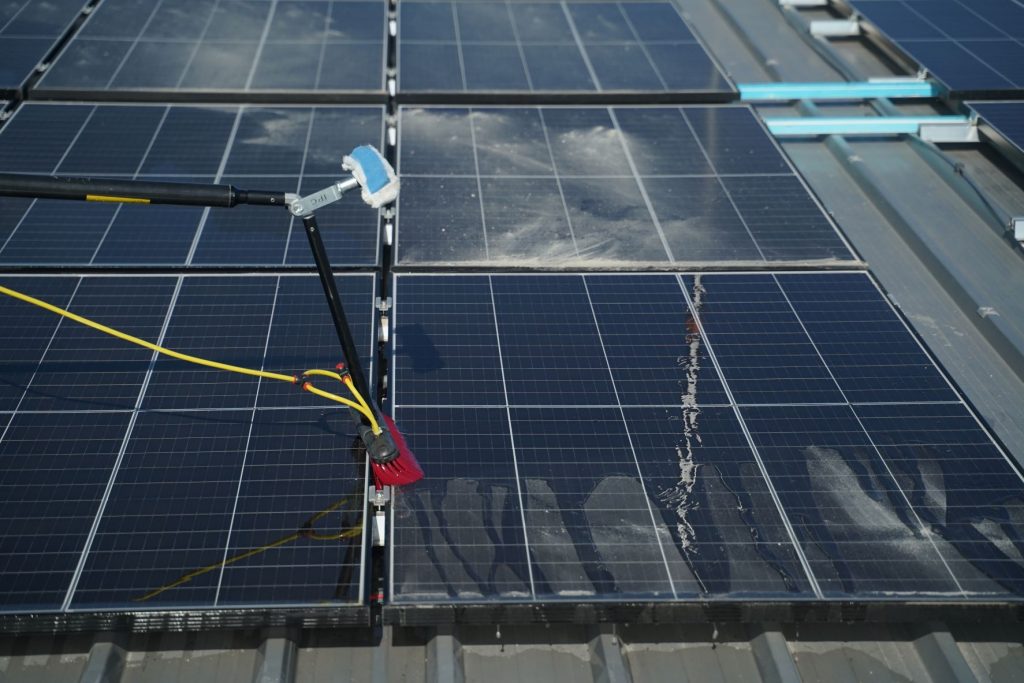
Periodic cleaning of photovoltaic panels is extremely important to achieve optimal efficiency in the photovoltaic system. Even the best photovoltaic panels have an efficiency of only 20%, which means that 80% of the incoming light is wasted. By cleaning the panels, it allows the easy penetration of light, which improves the efficiency of the photovoltaic panels and, consequently, the overall performance of the photovoltaic system.
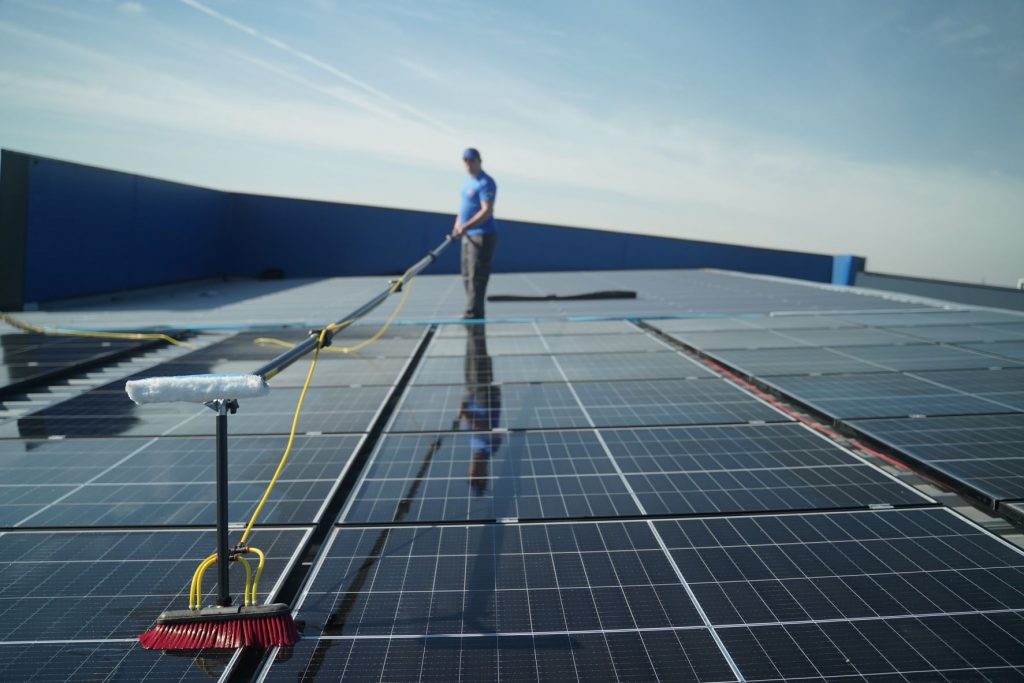
The cost of cleaning photovoltaic panels is significantly less than the amount of energy loss that would occur if they are not cleaned. The results are visible and can be certified immediately after the cleaning operations are completed.
Efficiency and performance of systems
Photovoltaic panels represent a significant investment, so it is important to achieve a quick ROI (Return on Investment). Failing to clean the panels regularly can affect the time it takes to achieve the return on investment. It can also lead to a loss of system efficiency due to the layer of dirt that accumulates on the surface of the panels. For this reason, periodic cleaning is extremely important if you want to achieve efficient performance and maximize the efficiency of the photovoltaic panels.
To better understand the importance of regular cleaning of photovoltaic panels, let’s take a look at how they work. Photovoltaic panels absorb solar light and convert it into electricity. The more light the panel can absorb, the more money you can save. Even the best photovoltaic panels have an efficiency of only 20%, which means that 80% of the incoming light is wasted. Therefore, it is crucial to keep your panels clean to allow easy penetration of light and maximize the efficiency and profitability of the system.
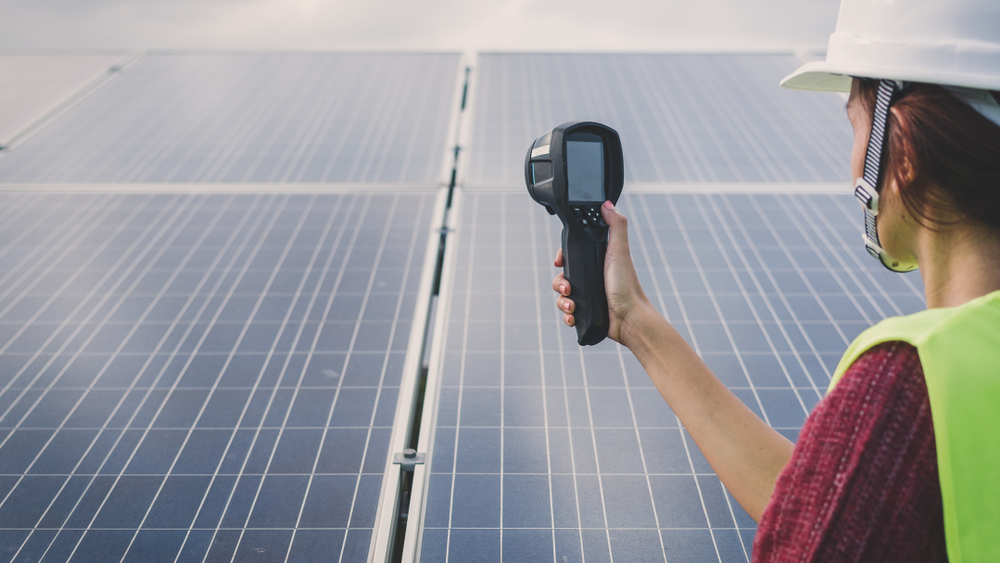
Long-term savings
Cleaning photovoltaic systems is an important investment, but the cost of cleaning the panels is significantly lower than the amount of energy loss that would occur if they are not cleaned. Moreover, cleaning the panels can extend their lifespan and help ensure long-term efficiency of the photovoltaic system. In fact, the efficiency of the panels can decrease during the warranty period, which can last up to 25 years, if they are not regularly cleaned.
Protecting the Investment
Solar energy cannot be absorbed and converted into electricity if the photovoltaic panels are covered with dust, dirt, or other materials. This reduces the system’s efficiency and can affect the long-term performance of the photovoltaic panels. Additionally, in areas with precipitation, leaves, or birds, the panels can get dirtier more quickly and intensely, leading to a greater loss of efficiency. By regularly cleaning the photovoltaic panels, you can ensure optimal system performance and protect the investment you have made.
Improving efficiency
Periodic cleaning of photovoltaic panels improves their efficiency. If the panels are covered with dirt, photovoltaic light cannot be efficiently absorbed by the solar cells, reducing the system’s efficiency. The cleaner the panels are, the more light can be absorbed and converted into electricity. Therefore, regular cleaning of photovoltaic panels can improve system efficiency and help reduce long-term energy costs.
Prolonging the system’s lifespan
Regular cleaning of photovoltaic panels can extend the system’s lifespan. Dirt and other materials that accumulate on the panels can cause damage, reducing the system’s lifespan. By periodically cleaning the photovoltaic panels, you can prevent damage and prolong the system’s lifespan.
Ensuring safety
Cleaning photovoltaic panels can be a hazardous process and should be carried out by qualified personnel. To ensure the safety of workers and the system, it is important to use professional photovoltaic panel cleaning services. These specialists are trained and equipped to ensure safe and efficient cleaning of photovoltaic panels.
Protecting the environment
Photovoltaic panels are an important source of green energy, and cleaning them responsibly can help protect the environment. Cleaning products used for photovoltaic panel cleaning can be toxic and can affect air and water quality. To minimize the impact on the environment, it is important to use cleaning services that use eco-friendly products and responsible methods.
In conclusion,
cleaning photovoltaic panels and maintaining photovoltaic systems are essential aspects to achieve maximum efficiency and a quick return on investment.
